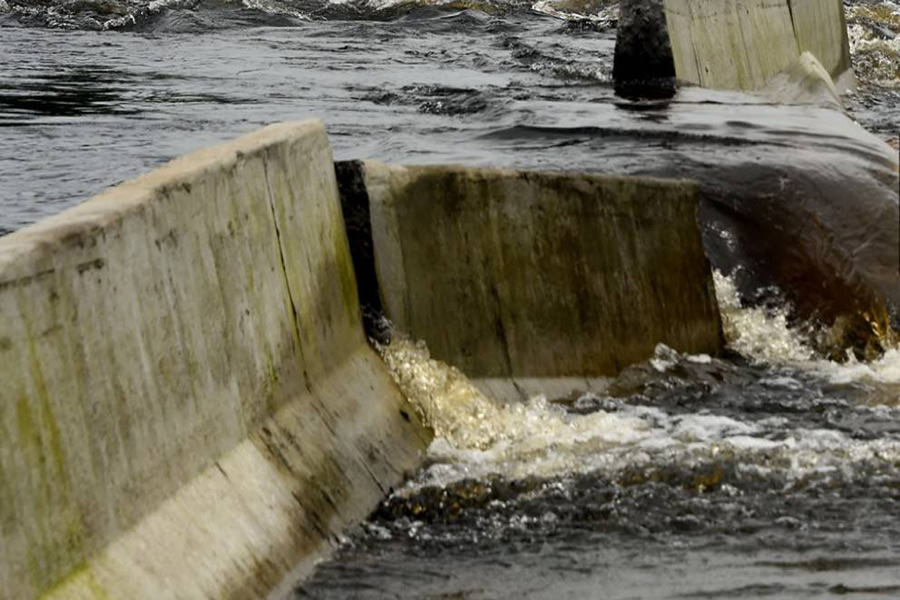Action Aid urges state to activate contingency plans to mitigate floods
With the coming of rains, Abuja residents have embarked on clearing of drains to check flooding. While some came out as volunteers, others hired labourers to clear filth impeding free flow of water in drains during the dry season.
Some of the cleared drains that are located along the popular Gado Nasco Road in Kubwa, include: Pipeline Road, Phase 4, and NEPA Road. Other drains outside Kubwa are in Bwari (Ushafa, Peye, Jigo), Garki and Wuse.
Officials of waste management department of Abuja Environmental Board were also deployed to ensure that the drains are properly cleared and their slabs overhauled.
The project supervisor, Ahmed Ishaya, said residents decided to clear the drains without always waiting for government to solve problems they could easily handled. He said: “Residents cannot always rely on the government for domestic assistance like this. These drainages are not littered by government, but by residents living around them. We as a people can be lackadaisical at times with issues bordering on the environment, especially in disposal of waste.
“So, landlords were asked to get their tenants to contribute a token and afterward we hired labourers to clean our drains. This part of Kubwa is a waterlogged area, if we don’t get to work now, we will bite our fingers tomorrow.”
A resident, Judith Blessing, who was involved in a car crash, last week, along Ushafa Road in Bwari, Abuja, after a heavy rain, said: “I boarded a vehicle from Bwari and heading to Kubwa, we had an accident because of flooded road.
“If the drains along the road were not filled with filths, the accident would certainly not have occurred.
“Residents should not wait until the rainy season, before cleaning up their drains.” Also, a trader, Ovie Efe, narrated how the rain caught her unaware and entered her shop because the drains were blocked.
According to her, since the drains are blocked by nonchalant attitudes of residents, they should come together and clear to avoid witnessing flood havoc that wrecked the area last year.”
Another resident and teacher, Kalu Ojimba, said people should not wait for rains before clearing their drains. One of the labourers clearing the drains, Ali Nuhu, expressed excitement of being one of those hired to do the work.
According to him, they were always hired to clear the drains around Wuse, Garki, and Kubwa at the beginning of the rainy season or during the rainy season.”
Speaking on the importance of clearing the drains, a resident and environmentalist, Dr. Chidinma Theresa Odaghara, said apart from preventing floods, it ensures free flow of water during and after rains, thereby reducing health risks.
Contacted, the Deputy Director of Abuja Waste Management Authority (AWMA), Omoruyi Omogiade, said the agency has embarked on series of public enlightenment against disposal of waste on drains.
He expressed happiness that residents are now coming out to clear their drains in compliance with the Agency’s directive. Omogiade stressed that officials of the Agency have also embarked on clearing of drains and dirt in Abuja.
To ensure effective delivery, he said the Federal Capital Territory (FCT) has been divided into districts, namely: Lifecamp, Gwarimpa, Wuse, Wuse1, Wuse 2, Maitama, Asokoro, Durumi, Lokogoma and others.
He urged Abuja residents to embrace cleanliness in all aspects of their daily lives and ensure that grasses around them are well trimmed, and drains freed from waste to avoid flooding.
“The rainy season is around the corner and Abuja has experienced three to four rains, so far and more are coming,” he added.
MEANWHILE, ActionAid has urged states to develop and activate contingency plans to mitigate looming flood disaster.
They specifically told states in the coastal areas like: Akwa-Ibom, Bayelsa, Cross-Rivers, Delta, Kogi, Edo, Lagos, Ogun, Ondo and Rivers, where people live on water and non coastal states that are susceptible to flooding like: Jigawa, Adamawa, Kano, Zamfara, Ebonyi and Yobe to activate their flood preparedness plan and communicate same to likely communities to be affected, to minimise possible losses.
Country Director, Action Aid, Ene Obi, who disclosed this during a press conference on the looming flood in Abuja, appealed to the Federal and State governments, emergency management agencies and concerned stakeholders to ensure that their contingency plans and intervention on flood this year is commensurate with the level of impact.
Obi recalled that in 2022, Nigeria experienced the worst flood in a decade with about 1.4 million people across 31 states affected and over 700,000 people displaced, while an estimated 500 deaths were recorded.
She pointed out that the yearly displacement of people from the communities and severe losses across Nigeria because of flood is deepening poverty levels of states and of Nigerians, and also undermining efforts of all stakeholders in ensuring rights to schools and quality health care because schools and health centres serve as Internal Displaced Persons (IDPs) camps, during difficult times.
Obi, who was represented by the Director of Programmes, ActionAid, Suweba Dakwanbo, urged all tiers of government and other actors to strengthen rapid response mechanisms, including effective coordination of response. She said it is important as the impact of floods or severe dry spells is diverse and requires the action of various actors.
Also, ActionAid Resilience programme coordinator, David Abah urged State Houses of Assembly to be proactive during emergency response, stressing that government must always play leading roles, so that donor organisations, civil societies can follow suit.
Guardian
